
Why don't we talk as much as we used to? Is it because I did something wrong?

Why don't we talk as much as we used to? Is it because I did something wrong?
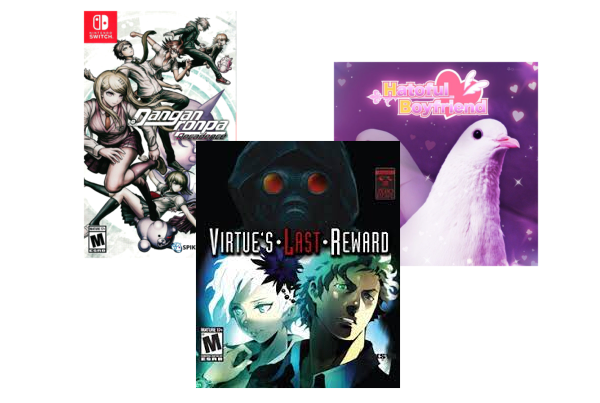
Visual novels are kind of a tricky sell for a lot of people, and I can absolutely see why. Not enough gameplay, and the people who enjoy interactions in a digital world will be turned off. Too much gameplay, and the people who favour a good story, or have difficulties with faster-paced gameplay due to disabilities, won’t have a good time. It’s definitely a niche genre, not helped by how many visual novels have never been translated, or are out of print and unable to be obtained. Add in that they’re relatively easy to develop in comparison to other genres, which can lead to a glut of low-quality content on digital storefronts, and I can understand why they’re not everybody’s cup of tea.
As you can probably guess from the fact that I’ve developed a visual novel, though, they’re definitely a genre that I’m a fan of! I honestly can’t recall the first time I played a visual novel, but the heavy amounts of reading weren’t something that turned me off at all - I love reading both novels and comic books, and I believe that the story of a game, when it’s good enough, can help to make up for any shortcomings in the gameplay presented. Thankfully, though, the gameplay of visual novels can often be just as good as games in other genres when done well. Neat, isn’t it?
As much as I do enjoy visual novels, don’t be surprised at how, shall we say, mainstream most of this list is - I’ll fully admit to being a bit intimidated by the length of some visual novels, even when the premise sounds good. While I do enjoy visual novels as a genre, I also think that they’re at their strongest when there’s some gameplay in there, as opposed to stories that you just read through without ever making any choices or changing things. Regardless, hopefully this will help to convince you to give some of these a go if you haven’t tried them already - I’ve had great experiences with all of these, and they’ve all earned their places on this list.
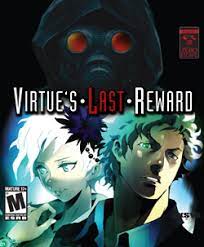
I’m putting this series at the top of this list not just because it’s my favourite visual novel series (I more or less put this list and others in the order that I think up items), but because I need more people to be aware of it. I realise that what I’m about to say is probably going to be a pretty controversial statement, but it’s one that I fully believe in: Zero Escape is pretty much the pinnacle of visual novels, and I can’t see any others that I play in my lifetime surpassing it.
What does it do that makes it so good, you ask? Aside from an absolute killer story and fantastic, memorable characters, it makes the most of its genre by giving an experience that could only be told through visual novels. I’m hesitant to give away information which could be constituted as a spoiler, so I’ll keep it to this and hope that it doesn’t give away too much: the games incorporate the fact that they have multiple routes into their stories, as well as other mechanics like players rewinding the game to choose different options. If you’re planning on playing these games, please wipe this information from your memory; even knowing that much might change the experience too much.
Of the three games, my favourite by far is the second entry, Virtue’s Last Reward. Aside from an absolute killer title, a large part of the plot revolves around the prisoner’s dilemma, a thought experiment that I’ve always loved. The first game, Nine Hours, Nine Persons, Nine Doors, has some great puzzles and plenty of excellent twists, but getting all of the routes is pretty difficult without a guide. The final game, Zero Time Dilemma, is easily the weakest - not helped by changing character designs and the dropping of some plot points from the second game - but nevertheless managed to entertain me. In spite of those flaws I’ve just listed, I still love the series, and would recommend it to anyone that’s looking for a fantastic story. It’s an excellent story that more than makes up for its flaws.
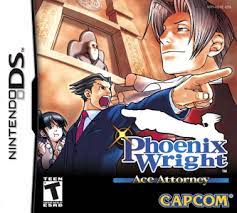
I imagine that my reaction the first time I was recommended playing Ace Attorney was the same as a lot of people’s: “Wait, the plot’s about you playing as a lawyer? And you defend your client in court? How could that be fun?” The base premise sounds bland, but when you crack open a game (or…download one, I guess, there probably aren’t many physical copies around these days) and discover the world of wacky characters, intriguing mysteries, and clever puzzles, you’ll immediately understand the appeal and why it’s such a popular series.
I think that what makes Ace Attorney so good is its tone. While the series does frequently feature murders and complex revenge plots, it often has a light-hearted, casual tone, helped along by the cast of memorable characters. The games know not to lean too hard into the comedy during the more serious moments of the story, but it also never gets too serious - there are moments of drama, but we never get anything too gorey or dark in the games. It’s a fantastic balance, and one that it pulls off perfectly.
Of all the games in the series, my favourite is easily the fifth, Dual Destinies, thanks to its memorable final villain and an excellent antagonistic prosecutor (although naturally he isn’t as good as Miles Edgeworth, my favourite character in the series). My favourite case is a bit harder to choose but I’d probably go with the final case of the second game, which has a fantastic twist and an excellent moral dilemma for the player. Ultimately though, this is splitting hairs a bit - all of the games are thoroughly enjoyable, and I’ve had an excellent time with them across the entire period I’ve played them.
Except for when I had to find Spark Brushel’s nervous tell. Fuck that shit.
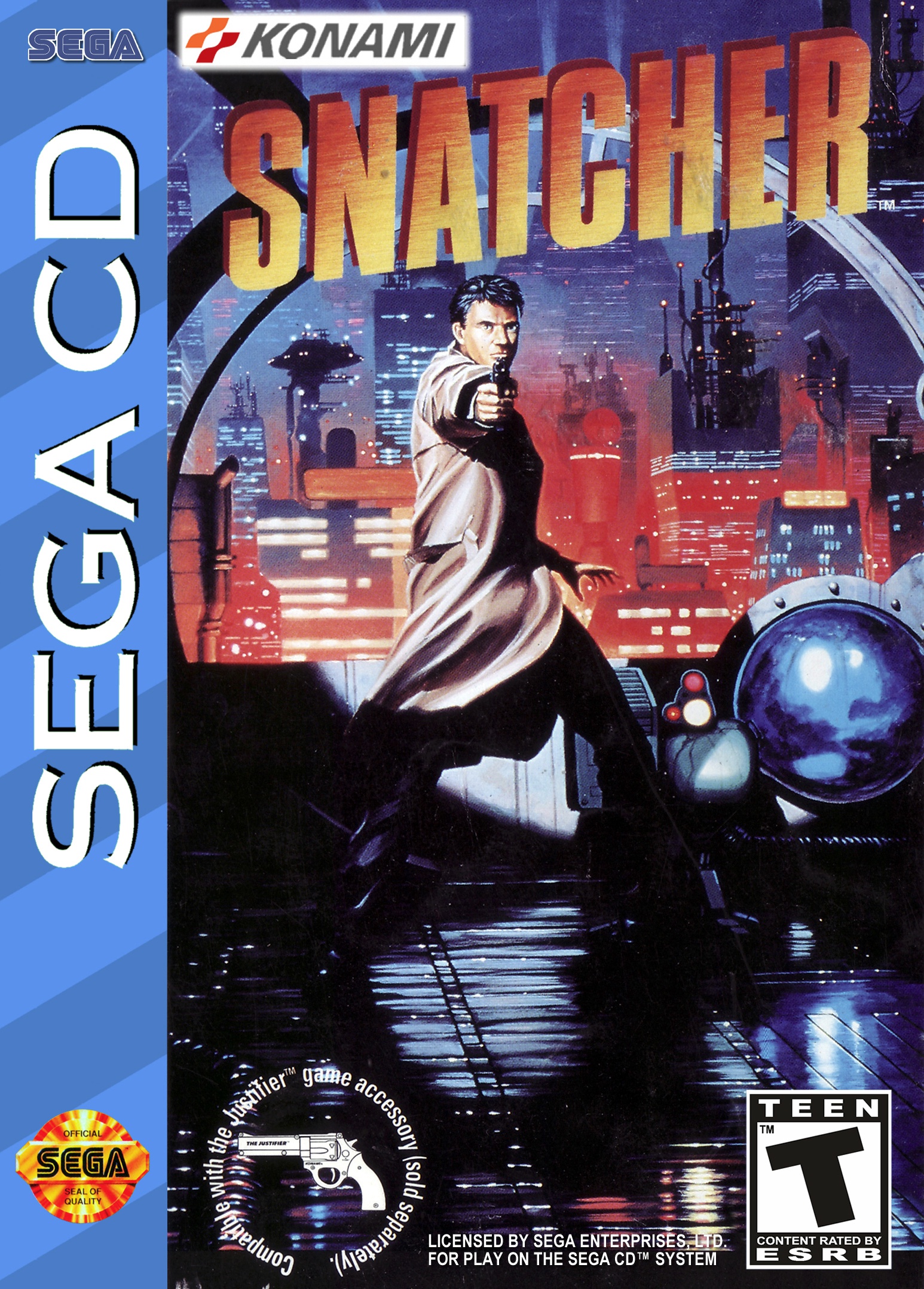
I’m a massive fan of the Metal Gear Solid series, and Hideo Kojima’s work in general. While I was vaguely aware of Snatcher thanks to the references to it in the Metal Gear games, it took me an embarrassing amount of time to actually get around to playing it. Once I did get around to it, I instantly regretted taking so long to play it - while the plot can easily be summed up as “Hideo Kojima picks up his Terminator and Blade Runner action figures and mashes them together,” that’s not a bad thing at all, as the game gave me some great puzzles to solve and told a very enjoyable story along the way.
I’m not enough of a musical person to normally have much to say about a game’s soundtrack, but Snatcher’s OST is outstanding enough that I have to comment on it. For the most part it’s a mix of jazz and synth, very fitting for the cyberpunk noir adventure that we find ourselves in. Throw in some fantastic pixel art and stellar voice acting to go along with it and you’ve got a solid experience that is, if not timeless, then at the very least doesn’t feel overly dated. For bonus points, the game is very well paced at around five to seven hours long, and I was able to beat the majority of it in a day.
There’s only two real negatives I can say about Snatcher. One is that the game can be a bit clunky at times, with players having to choose multiple options from a list in order to interact with things properly and move the story along. If the game was remade today I imagine that a lot of these options would be consolidated and it would be streamlined a lot, which would be very beneficial. The other negative is that the game isn’t readily available anywhere, so if you want to play it the odds are that you’ll be using an emulator. I’m not holding my breath that Konami will re-release it any time soon, but I definitely wouldn’t be disappointed if they did.
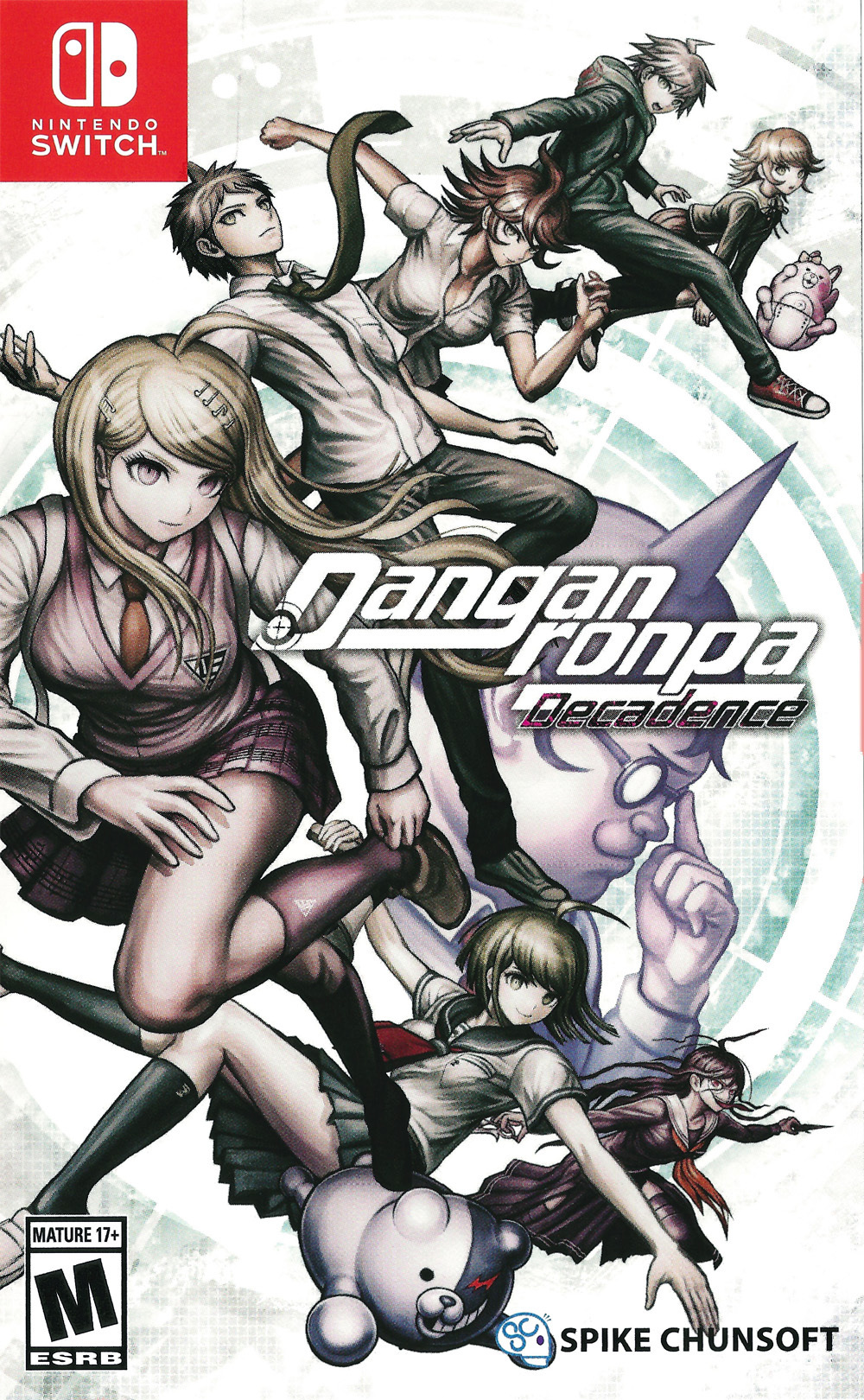
Say what you will about Danganronpa, you can’t deny that it’s got a great premise: fifteen (or is it sixteen?) students are locked into a location. How do you escape? You have to kill someone, then get away with the murder when the rest of the group investigates it. The simple setup leads to an abundance of excellent murder mysteries across all of the games, and to make things more interesting, there’s an overarching story at play the entire time as to why the group have been locked up and what the mastermind hopes to get out of it. It’s thoroughly engaging and always has you wondering what will happen next.
Beyond the story’s general premise, another simple yet effective thing about the story is who exactly the characters are. Each one, you see, is considered to be the absolute top in a certain field - fashionista, baseball player, clairvoyant, gambler, and so on. The talents of the individual students both factor into how some of the murders play out, and contribute to their character development and actions meaningfully, while ensuring that each character is memorable in their own way. Special shout-out to Nagito, the Ultimate Lucky Student from the second game, who always manages to remain entertaining and engaging owing to his rather unique worldview.
What this all adds up to is a fairly lengthy experience, but one that’s absolutely fantastic throughout. I went into the series knowing little about it beyond the basic premise, and got far more than I bargained for. While some of the mini-games played in the class trials are a bit gimmicky and frustrating, they’re minor flaws in the overall work. If you like murder mysteries and aren’t opposed to an anime-esque tone, then you’ll probably enjoy Danganronpa just as much as I did.
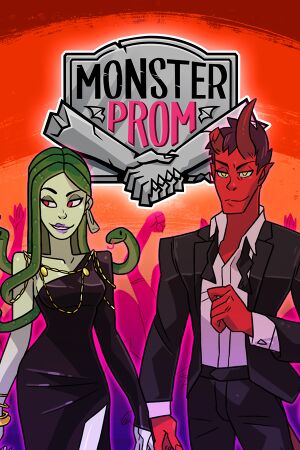
This is a bit different from the other entries on this list in that it’s really more of a party game with a visual novel format than a traditional visual novel, but the name of this post is Some of my favourite visual novels, not How I’m Gatekeeping the Visual Novel Genre and Why I’m Right. And hey, I’ve said before about how the best visual novels utilise their format to create a great experience - why shouldn’t party game visual novels be counted as great?
The first time I played Monster Prom, I thought it was fairly amusing and spent a few hours doing several runs of it and getting achievements, before putting it away and forgetting about it. I had a good time with it, but it wouldn’t have shown up on this list at that time. Around a year or so later, however, during the pandemic, I ended up starting it up while chatting with some friends one night. Between our amateur voice acting, some chaotic backstabbing, and the hilarious prompts the game gives you to determine player order between rounds, we had an absolute blast, and Monster Prom still remains one of our favourite games to play.
What makes Monster Prom so fun? It’s easily its light-hearted and laid-back tone. The game leans heavily into the rule of funny, offering absurd scenarios and ridiculous scenes with disregard for any kind of serious story, or even continuity at times. I believe that a large part of comedy is how unexpected something is, Monster Prom embraces this idea wholeheartedly. It wasn’t a game that changed my worldview or presented me with fantastic story concepts, but it did make me laugh and gave me a good time with friends, which is more than enough to earn it a place on this list.

I have a bit of a weird history with playing VA-11 HALL-A. Around the time it came out, I saw it on Steam and put it on my wishlist, since it looked pretty neat. At some point down the track - I honestly couldn’t say when, but it was probably several months - I removed it from my wishlist when cleaning things up, since I wasn’t feeling super passionate about it, and had mainly added it on a whim. But then a few months further beyond that, I decided to add it back again. Something about the game had kept it in my head, and I’m glad that it did, because when I got around to playing it, I was blown away by how good it was.
Where do I even start with how this game excels? The protagonist, Jill, is jaded and hurt, but never cynical enough to be annoying. I realise that this is a weird comment to make, but I love that one of the things you need to do to continue the game is get enough money for her to keep her porn subscription - it’s not presented as something sexy or erotic, but human. Jill’s lonely so she turns to porn; I think it’s something that a lot of people can relate to. While she is by far my favourite character, the entire cast is amazing - Dorothy, the cheerful prostitute; Sei, the good-hearted cop; Gillian, the bartender with a mysterious past…everyone is simply wonderful.
Something that I love about the overall story is that in spite of taking place in a cyberpunk world - and very well-realised one, at that - it’s not about saving the world. The plot is very much a personal one that just happens to take place in a fantastic world, which makes for a tale that’s much more relatable and enjoyable than if it had been all about hackers trying to stop an evil corporation or whatever. No, VA-11 HALL-A is just a simple story about some people trying to get through life, the same as the rest of us.
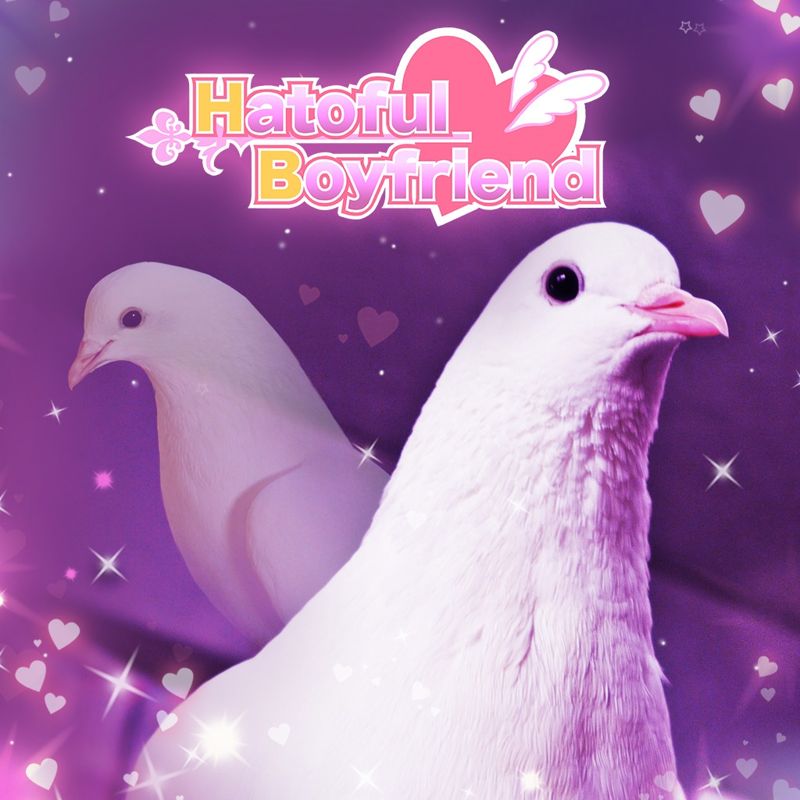
There’s only one real bad thing about Hatoful Boyfriend, and that’s that it’s hard to sell to people without going into why exactly they should play it. “Here’s a game about dating pigeons!” If they’re not already turned off by that (shame on them if they are), then they’ll probably think that it’s just a joke game. They might play a single route, laugh a little bit at the absurdity, then move on to something different.
But if you stick with it and play all the routes, by god will you be rewarded. Firstly, you’ll get some genuinely good little romance stories by completing them. I’m a sucker for comedy, so Okosan’s route (and character in general) is probably my favourite one, but Ryouta and Nageki both have genuinely well-done stories that almost make you forget they’re, y’know, birds. Each route adds depth to the characters and lets you learn about them, and while that does sound pretty par for the course for a dating sim, that doesn’t mean that it’s not appreciated or well-done.
Continue even further past that, however, and you’ll get an absolutely amazing story. There’s plenty of twists, explanations for things that you took for granted, and shocking moments. I have a very distinct memory of getting to a certain point and immediately sending a very lengthy message to the friend that had originally recommended the game to me, because I needed to express my thoughts to someone. In spite of the fact that there are pretty much no choices in the game from here, I still fondly remember the game all of these years later, because the story is so strong. There was no way that the game wasn’t making it onto this list.
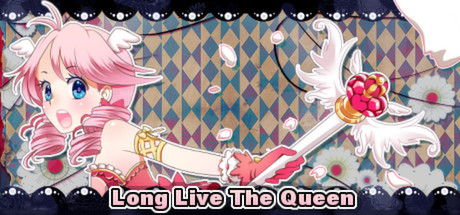
I don’t know whether I’d say that Long Live the Queen is the game that most influenced The Many Deaths of Lily Kosen, but it’s definitely a game that influenced it a lot. It’s got a pretty simple premise that works very well - you have a limited time to choose stats to increase. You also get to choose activities which influence the mood of the protagonist, Elodie, and from there, her stats and mood will affect the story as various checks are done throughout the story portions of the game.
As a result of this, you end up with a complex system that constantly has you second-guessing yourself. You can’t level up all of your skills, meaning that you’ll be failing a lot of skill checks. Was that one that you just failed a minor one that influences nothing, or will you feel its effects further down the line? If you die, you might end up switching to different skills on your next run so as to avoid that death…only to find that one of the skills you’d gone with on your previous run is still necessary to avoid an earlier death. There’s a lot of trial-and-error involved in the game, but while the game can throw you some curveballs, it never feels cheap.
What this all adds up to is a game where you get to experience a lot of variety and learn a lot of different information depending upon your choices. It always feels like you’re influencing the story and what direction the game goes in, even if you can’t always see where the destination is. Long Live the Queen is a fantastic example of a visual novel that blends story and gameplay together, and I hope we get more games like it in the future.
While there’s a few running themes across most of these games - they pretty much all blend story and gameplay together fairly seamlessly - there’s no one story genre that I feel stands out, which wasn’t intentional but I’m pretty okay with. I’m not going to tell anyone what their game likes should or should not be, but I enjoy a good bit of diversity across my interests and trying different things. Are there any visual novels you’d recommend based on this list? Let me know and I’ll try and look at them and to see what I can learn from them!
Back to news